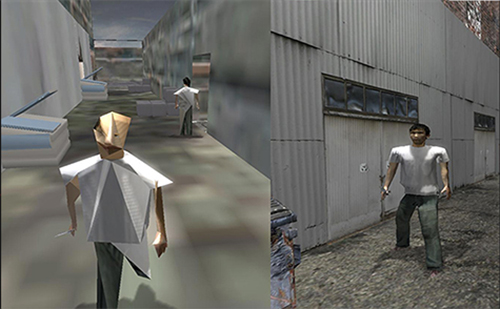Designing for Engagement: A Serious Game for Psychological Counselling
Evidence from studies of provocative motion indicates that motion sickness is tightly linked to the disturbances of thermoregulation. The major aim of the current study was to determine whether provocative visual stimuli (immersion into the virtual reality simulating rides on a rollercoaster) affect skin temperature that reflects thermoregulatory cutaneous responses, and to test whether such stimuli alter cognitive functions. Provocative visual stimulation caused prolongation of simple reaction time by 20–50 ms; this increase closely correlated with the subjective rating of nausea.
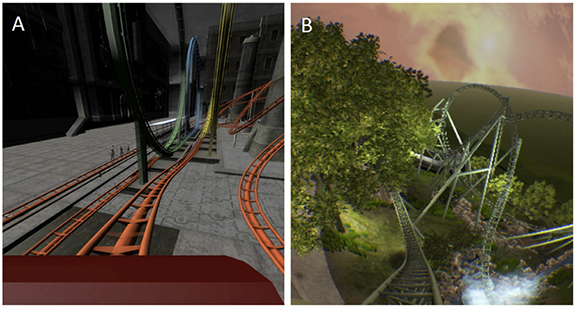
Peripheral Displays, Ambient Information and Cognitive Load
Ambient Information Systems are ubiquitous visualisations designed to display relevant, real-time operational data in the periphery of a users attention. Often such displays are deployed in public or work-related spaces. The focus on designing such displays is to ensure an aesthetically pleasing and non-alarming presentation that allows users to "notice" interesting temporal patterns in the data without them directly attending to the display. This project is developing a specific display called the WaveWatch that uses the frequency and turbulence of ocean waves to reflect temporal patterns in data such as real time web access or stock market activity.

Designing for Engagement: A Serious Game for Psychological Counselling
Shadow is a serious game, being developed to improve the completion of a psychological counselling program designed to treat binge drinking and depressed mood in young adults. The use of games for serious purposes is motivated by the ideas that players will engage more deeply with game-based technology as opposed to more traditional training approaches. This research formalises the broad notion of ‘engagement” into three measurable components, namely Behavioural engagement, Cognitive engagement and Affective Engagement. We have been investigating objective measures of the emotional responses of players to game content using the startle probe to measure positive and negative affect of various game components.

Emotion Expression in Avatars and Affective Processing
Avatars have been a traditional mainstay of game based interactive entertainment, where they aim to enhance story-based interaction and player engagement. However, there has been an increase in avatar roles in fields such as serious gaming and simulation training, where accurate and cost-effective avatar development to convey human emotional expressions is of interest. This project explores the impact of avatar realism, fidelity, and gender on how people perceive, or are affected, by emotional displays. I nitial results indicate fidelity has a minimal impact of the display of emotional expression, however, gender plays a significant role.
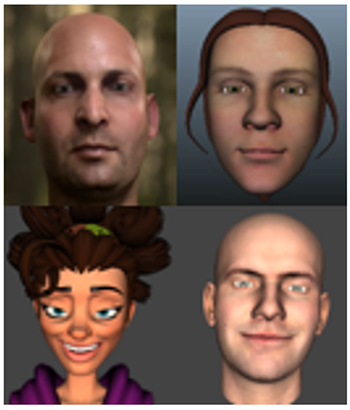
Sentence Hero: A Literacy App
Sentence Hero is a free serious game that aims to help young adult and adult students improve their use of punctuation and learn to run-on sentences and sentence fragments. It is an engaging game for personalised mobile learning and integration into formal curriculum. This project is joint collaboration with a team of instructional designers and software engineers in the DICE research network.
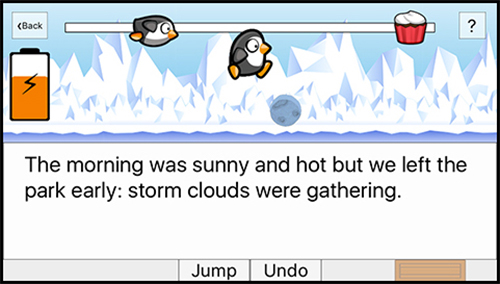
Exploring Building Information Modeling (BIM) to Game Engine Conversion
The use of detailed building plans and models is common in the architecture domain. Also there is increasing interest in the reuse of such models to realise 3D interactive virtual environments to aid model refinement and for use as training environments. This project explored the use of graphics engines from game technology, specifically the use of Unity3D, to provide robust and usable virtual environments with high levels of visual realism and interaction support.
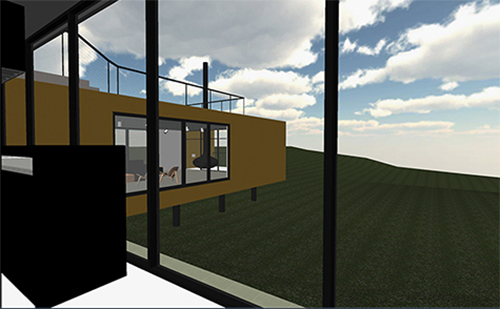
Graphical Realism Requirements for Virtual Environments
There is increasing potential for military and law enforcement training systems related to marksmanship, threat identification and time critical decision making. However, building highly realistic simulators can be expensive. This project explored the effect of altering graphical realism on user performance for a threat identification task in a first-person virtual environment. Realism was manipulated by changing graphic veracity across three levels, namely, low, medium and high, while participant performance was measured by the proportion of correct and incorrect threat identifications made.
